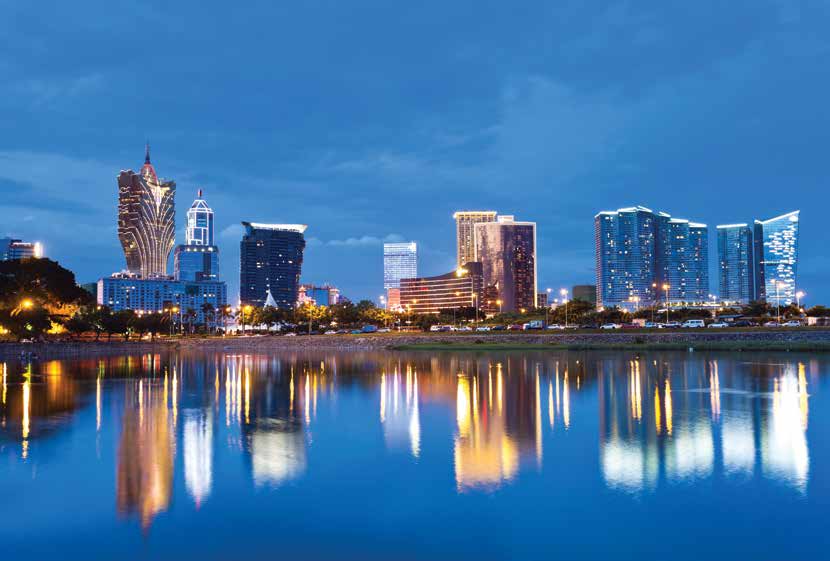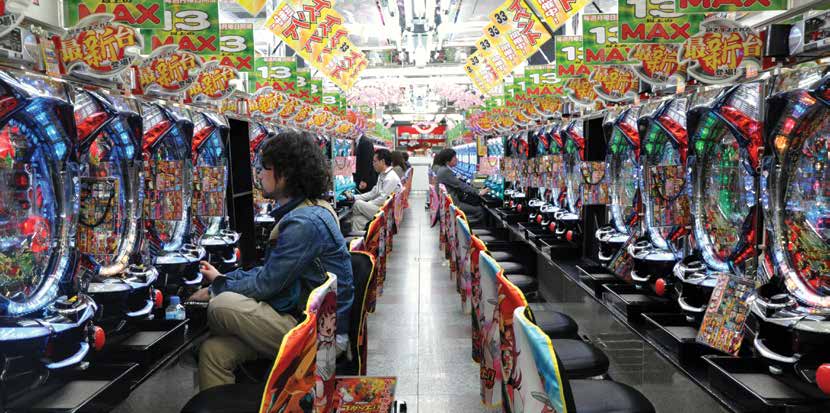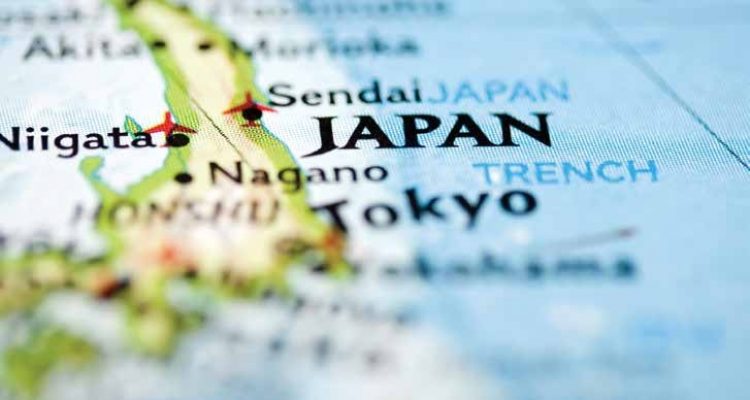In the penultimate instalment of their five part series on the development of Japanese integrated resorts, casino and integrated resort experts Dr Glenn McCartney and Dr Andy Nazarechuk discuss the divisive issue of problem gambling.
By Dr Glenn McCartney and Dr Andy Nazarechuk
The mere mention of the word “casino” still raises eyebrows with perhaps greater levels of interest compared to other forms of gambling such as lotteries, lucky draws, sports betting or gambling packaged to assist a cause or within an entertainment parlor. A list of vices or undesirable activities will often be cited by opposition groups as a consequence of bringing a casino into the neighbourhood.
What is important in Japan, given the stakes, is that the issues be addressed with science and empirical based evidence void of emotions or perceptions. As a starting point, what are the social costs and consequences directly brought about by gambling? And having defined these, how do you measure social costs and prove that economic consequences were brought about specifically by the presence of adding an IR to any Japanese city?
These are important fundamental, initial questions in the great social cost debate, which unfortunately is largely confused, poorly calculated and for the most part fraught with inaccuracies.
For some, the issue of whether they determine gambling to be “good” or “bad” (such as some might see smoking, drugs and alcohol) will determine their emphasis and response bias. The consequences listed from problem gambling behavior often include theft, corruption, bankruptcy and other illegal activities. But let’s consider that a pathological gambler may have compulsive disorder issues (shopping, smoking and alcohol) or gamble due to other problems. Should the casino then be blamed and aligned with all the social costs brought about by this individual? Was the casino the primary reason for a crime being committed, for company bankruptcy or for a sudden increase in divorce rates?
There is great debate on the subject, but given the attention granted the issue now in regards to Japanese IRs, a rational and empirical based approach is needed. We need to refer to the science.
On social costs related to gambling, Walker and Barnett in 1999* produced considerable detail, science and debate on what is and isn’t, in their opinion, a social cost of gambling. They present several interesting scenarios. Before addiction, they argue, the person makes a decision to gamble rationally. The addiction may lead to a decline in quality of life and regret towards the original decision. The argument is that since the consequences experienced by the gambler were made based on rational actions, these are not social costs.
The Macau government consumes a large part of its time and resources on taxing, monitoring and policing the casino industry. The Macau labour department constantly deals with large quantities of work permit requests; the public works department is frequently reviewing multiple casino resort construction permits while the tourism department spends resources licensing and inspecting restaurants and bars.
An argument is that this diverts government resources from welfare, education, tourism and city infrastructure developments. Therefore, this could be considered a social cost. Japanese authorities will similarly need to avert attention and resources to new IR construction, development and policy in their daily operations (which includes those concerning social issues), as well as ramping up their capacities and capabilities so as other departments do not forget other priorities.
Recent reports have put problem gambler numbers in Japan at five million. In jurisdictions with legal and well-run casinos there is a legitimate opportunity to provide counselling, support and educational resources to the community. There are dozens of methods employed globally to communicate and try to prevent problem gambling. In jurisdictions with strong regulatory policies concerning problem gambling, casinos can be required to train their staff to identify problem gamblers. Materials with resources and counselling information must be provided where all players can see it.

Macau’s government spends considerable time and resources monitoring and policing the city’s casino industry
Studies have shown that the percentage of players cited as problem gamblers can be anywhere from 1% to 6%. The number can be lower if cited by those supportive and higher if cited by those against casino introduction or expansion. Naturally there is the issue of protecting the vulnerable, the young and the elderly as well as casino staff who spend large quantities of their time around the casino environment.
There are many factors to consider that should be part of a community assessment on preventing gambling addiction. They include the background of casino operators and suppliers in addressing responsible gaming; size of the casino (tables, slots, pachinko machines); opening hours (24/7); whether the location is integrated into the city network, is in an isolated location or a cluster permitting spill-over to more than one casino property visit; casino credit policy; regulation and regulation committee; casino staff training; and table limits.
Casinos can implement policies such as putting their ATMs external to the casino floor with daily maximum withdrawal limits, the logic being a gambler will have time to reflect as he or she walks to the ATM. The current debate on smoking on Macau’s casino floors and a smoking lounge compromise could mean that gamblers spend less time away from the tables to smoke.
One of the most discussed and interesting methods of controlling access to the casino is through an entrance levy such as the one in place in Singapore. The entrance levy is misunderstood by many who think that the primary purpose of the levy is to prevent problem gamblers from entering the casino. This is simply not the case.
The entrance levy provides three main functions. First, it requires each person who enters the casino to identify his or herself with a passport or ID card. This provides a database for use with exclusion programs. Foreigners enter free, while locals pay S$100 to enter, or they can pay S$2000 for one year’s access. The entrance levy generates S$150 million dollars or more per year to government revenues to spend on community programs.

Second, the entrance levy makes it difficult for people with lower incomes to gain access to the casino. The levy forces low income earners to think twice before entering a casino. This in itself reduces the number of people who may try a casino or become problem gamblers. Finally, the revenue generated from the entrance levy is not dedicated to solving problem gambling issues, but is given to a local government-approved agency whose main purpose is to fund community activities and services. This allows the local community to see actual benefits that are derived directly from the casino. The casino benefits from those who gamble, the government benefits from increased tax revenue and the community benefits from the casino entrance levy. It is a win-win-win for all concerned.
Casino exclusion programmes are also popular. A gambler can self-exclude him or herself from a casino if he or she believes they have a problem. Often a member of their immediate family can also ask the gambler to be excluded. The Macau government extends this exclusion to the public sector apart from those tasked to monitor and police the casino. Kangwon Land is the only casino in South Korea where locals are allowed to gamble, but those living in the local vicinity face additional restrictions on the number of visits per month. Key, however, is monitoring and enforcement. Singapore and Korea requires the presentation of ID cards to gain access. Macau and the Philippines do not, the weakness in their process being that it may be more difficult to identify a problem gambler who has been excluded.
Gambling has been around for a long time and will continue to be a part of the world we live in. In the US, prior to 1978, the only place to legally gamble in a casino was in Las Vegas. Common perception was that if casinos were allowed to open elsewhere, there would be more people with gambling problems. Today, there are casinos in 48 of the 50 states.
Casino tourism, like any form of tourism, is a double-edged sword. The cost-benefit argument should always be implemented with a realistic and unbiased assessment. The high revenue stakes and returns on casino development from investor to governmental agencies and NGOs has unfortunately meant conflicting and skewed assessments.
While still a relatively small percentage, those with a gambling problem need and must have assistance to overcome it and regain their normal lives. Strong regulatory policies and a rigorous policy framework will be important for Japan as it is for any casino jurisdiction globally.
We close with an insight from Macau. In the original Lisboa casino, years before the new casino boom, there was a small sign on a column located at the entrance of the casino. It read, “No one can win all the time, we advise you to play merely for pleasure and risk only what you can spare.” Although the sign is gone, that advice still holds true today




























